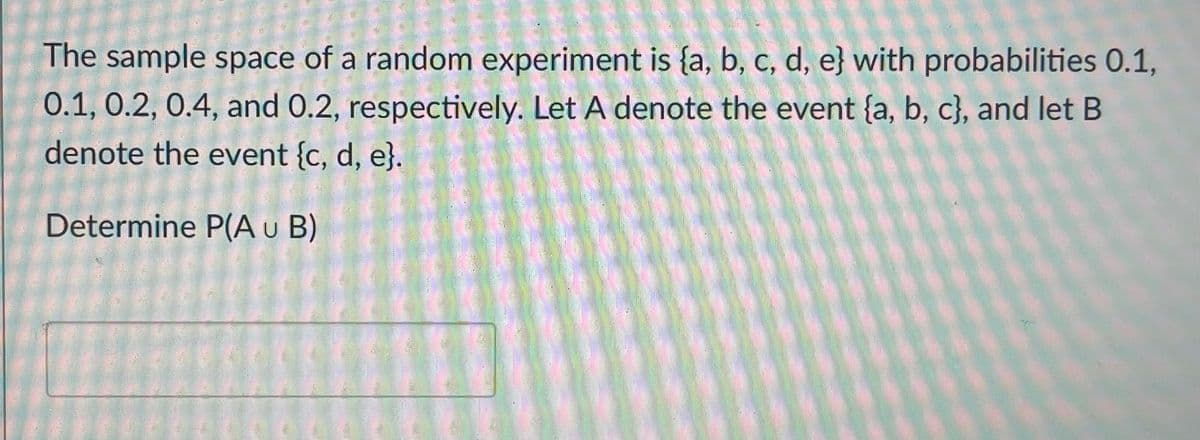The sample space of a random experiment is {a, b, C, d, e} with probabilities 0.1, 0.1, 0.2, 0.4, and 0.2, respectively. Let A denote the event {a, b, c}, and let B denote the event {c, d, e}. Determine P(A u B)
The sample space of a random experiment is {a, b, C, d, e} with probabilities 0.1, 0.1, 0.2, 0.4, and 0.2, respectively. Let A denote the event {a, b, c}, and let B denote the event {c, d, e}. Determine P(A u B)
Algebra and Trigonometry (MindTap Course List)
4th Edition
ISBN:9781305071742
Author:James Stewart, Lothar Redlin, Saleem Watson
Publisher:James Stewart, Lothar Redlin, Saleem Watson
Chapter14: Counting And Probability
Section14.2: Probability
Problem 1E: The set of all possible outcomes of an experiment is called the ____________ _____________. A subset...
Related questions
Question
Please help me with this:

Transcribed Image Text:The sample space of a random experiment is {a, b, c, d, e} with probabilities 0.1,
0.1, 0.2, 0.4, and 0.2, respectively. Let A denote the event {a, b, c}, and let B
denote the event {c, d, e}.
Determine P(A u B)
Expert Solution
This question has been solved!
Explore an expertly crafted, step-by-step solution for a thorough understanding of key concepts.
This is a popular solution!
Trending now
This is a popular solution!
Step by step
Solved in 2 steps

Recommended textbooks for you

Algebra and Trigonometry (MindTap Course List)
Algebra
ISBN:
9781305071742
Author:
James Stewart, Lothar Redlin, Saleem Watson
Publisher:
Cengage Learning

Algebra and Trigonometry (MindTap Course List)
Algebra
ISBN:
9781305071742
Author:
James Stewart, Lothar Redlin, Saleem Watson
Publisher:
Cengage Learning